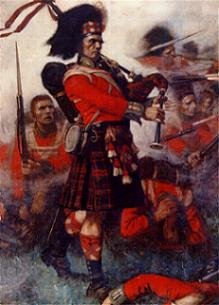Allan Richard Appleyard
Allan was the eighth child of George and Jane Appleyard
and the fourth son to enlist in the Great War.
Growing up in Binginwarri, Allan enlisted on July 12 1915
at Binginwarri, and then again on July 28 at Alberton aged 22 years and 8
months. Close to his sister Bessie, Allan
would list her as his contact address while at war.
Arriving in Castlemaine in August, Allan, like many young
men from the country, was assigned to the 9th Lighthorse Regiment, leaving
Adelaide on board the HMAT A30 Borda on January 11, 1916.
Although many of our troops conducted their training in
Egypt before joining troops in Gallipoli and on the Western Front, reports
indicate that Allan would undertake his training in Portsmouth, England, where
he was transferred to the 1st Australian Field Artillery as a Gunner in
September 1916 supporting the 1st Division.
There was a saying during the war that it took three
months to train an infantryman, but twelve months to train a gunner. There may
have been some truth to this. The new army batteries, who went to France in
1916 were very inexperienced. Due to the shortage of guns and ammunition, many
had had little relevant training before going into action. They were good at
horse drill, and cleaning kit, but this was different to firing a large gun
towards an invisible enemy at night while you were under fire.
Allan would depart from Southampton, joining the group in
France where he fought with the 1st Division from March, 1917.
During 1917 the 1st Australian Field Artillery was involved
in the pursuit of the Germans to the Hindenburg Line. While maintaining
outposts close to that line around Lagnicourt, the 1st division which the Artillery
group was supporting, was struck by a powerful German counterattack on 15 April
1917 and beat it off. In May it relieved the Second Division in the Second
Battle of Bullecourt.
During World War 1, particularly on the Western Front,
the use of artillery dominated the battlefield and, combined with wet weather,
would turn the terrain into the muddy hell that we recognise from images taken.
After a rest spell, the division returned to the Ypres
Salient and participated in the Third Battle of Ypres, in which it fought with
great success at Menin Road in September and Broodeseinde in October.
Whilst fighting at Broodeseinde, Allan was wounded for
the first time, returning to the field in December.
Fighting in Flanders and during the Battle of Amiens, Allan
was now fighting with the 102 Howitzer Battery supporting the 1st Division on
the front line. The Division was in the process of being returned
to Australia on the orders on Prime Minister, Billy Hughes, when, in October
1918, Allan was severely wounded with gunshot wounds to the chest and right arm. So severe were his wounds that he was sent from
the military hospital in Rouen to England.
Four weeks later, the war would be over.
His parents, George and Jane would receive updates on his
health which must have provided great relief after their earlier experience
when two of their other sons, Charles and Gordon were both killed in action on
the Western front.
Now in Portsmouth, the wound was significant enough that Allan
was still in hospital, in February 1919, three months after the war hand ended.
On February 12, Allan would break out of the hospital,
officially missing from 22:00 until 23:30.
For this, he forfeited a day’s pay.
On February 22 Allan would finally be discharged from the
hospital and would be granted leave however, by the 25th, Allan would be in
trouble again, this time for returning from leave late. Reports show that his ‘lateness’ was dealt
with but it doesn’t say how.
Returning to Australia on April 19, 1919 Allan would
return to Alberton. He would never
marry, living with his sister Bessie at different times, and continue his life
as a labourer, until he passed away in 1951, aged 59.
Allan Richard Appleyard
Born: November 1892, Binginwarri
Died: Dec 1, 1951, Yarram
Relationship with Peter Appleyard, Grandson

.jpg)


Comments
Post a Comment